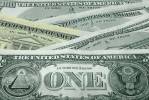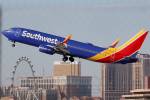ATM operators sued over alleged breach of posting transaction costs
Thomas Chayra came to Las Vegas in September to play the machines but not with the idea of putting money into them.
Instead, the Los Angeles-area resident took a grand tour of ATMs throughout the valley and became the lead plaintiff in cases filed in U.S. District Court this week against 17 nonbank operators that allegedly did not follow federal rules about disclosing fees. This brought a national litigation trend over the fee notice to Las Vegas in a big way. However, an ATM owner is off the hook if he can show that vandals removed the exterior sign.
"Wow, 17 is a lot for one place," said Ken Otsuka, senior consulting manager risk manager for CUNA Mutual Group in Madison, Wis.
CUNA Mutual, an insurance company, has tracked a spike starting last year in similar complaints against its credit union clients.
Regulation E set by the Federal Reserve a decade ago state that any ATM withdrawal charge, typically $2, must be noticed on or near the machine and on the screen before completing a transaction. Violations can lead to penalties as high as $500,000.
The string of defendants range from the Golden Nugget and the Greyhound bus station to restaurants and convenience stores. However, said attorney Mark Henness, who initiated all the cases, they are not the ultimate targets.
"Our concern is with the financial institutions," Henness said. "But we have to sue (the outlets) to know who the institutions are."
At Bells Market at 515 E. Oakey Blvd., one of the companies sued, an employee who gave his name only as Jake said the ATM did not have the sign on the outside.
"I wish the company that operates it had told us," he said. "We have it on the screen but we didn't know you didn't need the other sign, too."
This mirrors the experience CUNA Mutual has experienced with credit unions across the country, said Otsuka. Now, company agents have the fee disclosure rules on their checklist of things that need to be satisfied when visiting clients.
According to the trade group National ATM Council, about 200,000 machines nationwide are not owned or operated by banks. The independents frequently buy or lease the machines and contract operation and maintenance to another company.
The question of who bears responsibility for meeting the disclosure rules is one of the unsettled parts of the law, said attorney Jon Parritz at the Minneapolis law firm Maslon. Numerous fee disclosure suits have been filed in Minnesota, but because they are recent and some have settled its unclear whether the ATM owner or operator has to ensure proper notice of the fees.
Since many ATMs still do not follow the rules, Henness said, "We are the ones who are enforcing them for the benefit of the consumers."
Otsuka countered: "What good sales people these law firms are. These cases are just very easy money for the law firms" because so many of them settle,
In addition, he said, lead plaintiffs such as Chayra typically earn $1,000 per case.
Henness described Chayra as an unemployed Iraqi war veteran who saw how people in other parts of the country had made money from fee disclosure lawsuits. Henness said Chayra was referred to his firm by other law firms in Houston and Los Angeles.
But Jake remembers Chayra for an unusual visit to the Bells Market from about a month ago.
"He was taking a bunch of pictures of our ATM," he said. "He said he was from an ATM company that was doing a survey."
Contact reporter Tim O'Reiley at toreiley@reviewjournal.com or 702-387-5290.




























